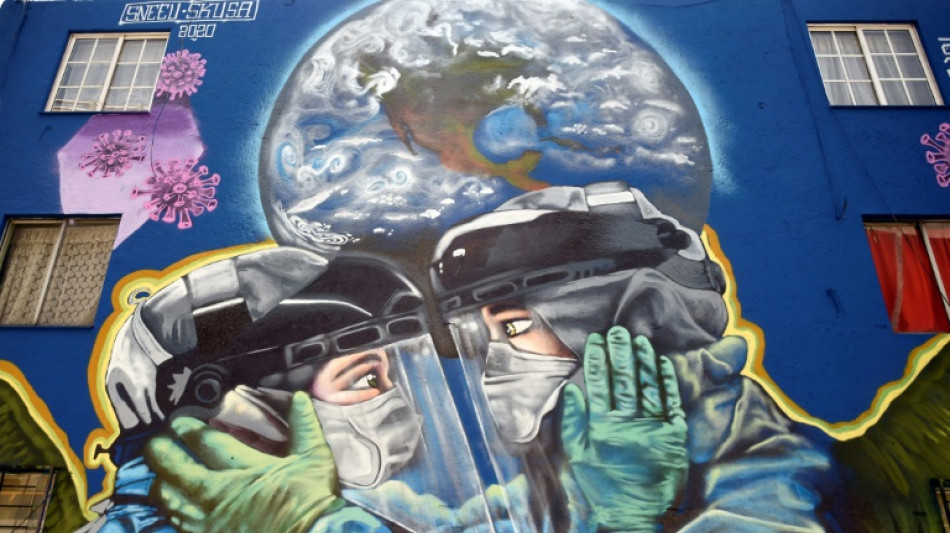
-
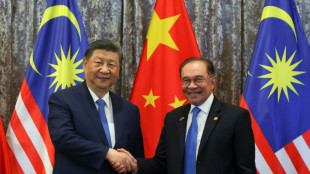 China's Xi meets Malaysian leaders, vows to 'safeguard' Asia allies
China's Xi meets Malaysian leaders, vows to 'safeguard' Asia allies
-
France urges release of jailed Russian journalists who covered Navalny

-
 Gabon striker Boupendza dies after 11th floor fall
Gabon striker Boupendza dies after 11th floor fall
-
UK top court rules definition of 'woman' based on sex at birth

-
 PSG keep Champions League bid alive, despite old ghosts reappearing
PSG keep Champions League bid alive, despite old ghosts reappearing
-
Stocks retreat as US hits Nvidia chip export to China
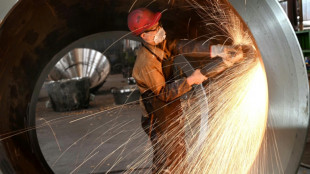
-
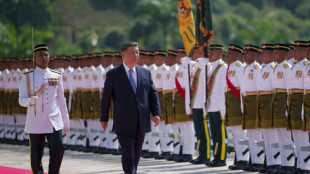 China's Xi meets Malaysian leaders in diplomatic charm offensive
China's Xi meets Malaysian leaders in diplomatic charm offensive
-
Israel says no humanitarian aid will enter Gaza
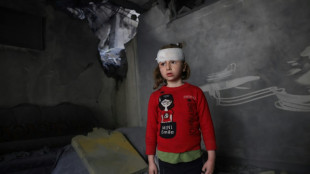
-
 Anxiety clouds Easter for West Bank Christians
Anxiety clouds Easter for West Bank Christians
-
Pocket watch found on Titanic victim to go on sale in UK
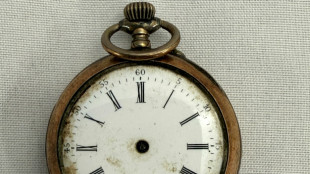
-
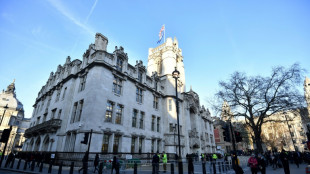 UK top court rules definition of 'a woman' based on sex at birth
UK top court rules definition of 'a woman' based on sex at birth
-
All Black Ioane to join Leinster on six-month 'sabbatical'

-
 Barca suffer morale blow in Dortmund amid quadruple hunt
Barca suffer morale blow in Dortmund amid quadruple hunt
-
China tells Trump to 'stop threatening and blackmailing'
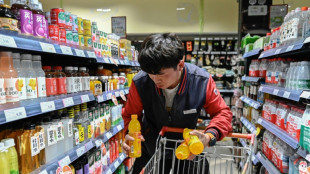
-
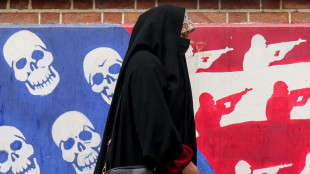 Iran FM says uranium enrichment 'non-negotiable' after Trump envoy urged halt
Iran FM says uranium enrichment 'non-negotiable' after Trump envoy urged halt
-
Automakers hold their breath on Trump's erratic US tariffs

-
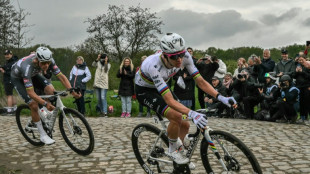 Cycling fan admits throwing bottle at Van der Poel was 'stupid'
Cycling fan admits throwing bottle at Van der Poel was 'stupid'
-
Troubled Red Bull search for path back to fast lane
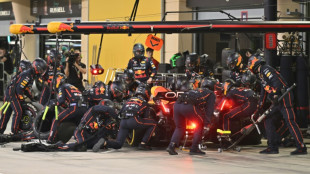
-
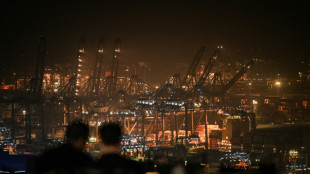 China's forecast-beating growth belies storm clouds ahead: analysts
China's forecast-beating growth belies storm clouds ahead: analysts
-
ASML CEO sees growing economic 'uncertainty' from tariffs
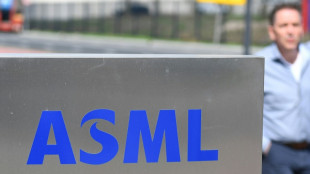
-
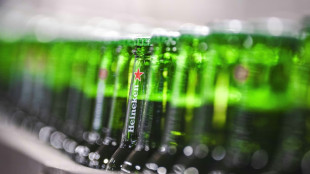 Heineken beer sales dip, tariffs add to uncertainty
Heineken beer sales dip, tariffs add to uncertainty
-
Rehab centre for Russian veterans from Ukraine fills up
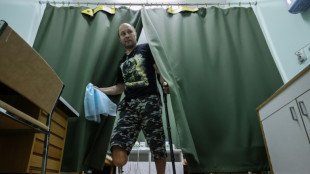
-
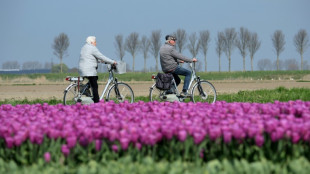 Dutch flower industry grasps thorny pesticide issue
Dutch flower industry grasps thorny pesticide issue
-
Solar boom counters power shortages in Niger

-
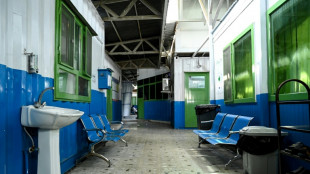 Malnourished children in Afghanistan at 'high risk of dying' without US aid
Malnourished children in Afghanistan at 'high risk of dying' without US aid
-
Skating comeback queen Liu says she can get even better for Olympics

-
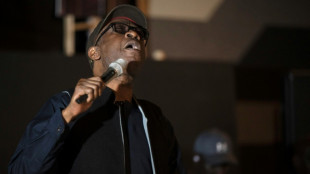 'Let's rock': world music icon Youssou N'Dour back on the road
'Let's rock': world music icon Youssou N'Dour back on the road
-
Mackerel and missiles: EU-UK defence deal snags on fish
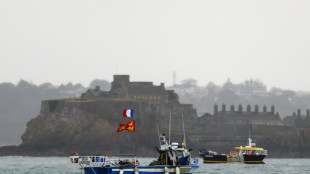
-
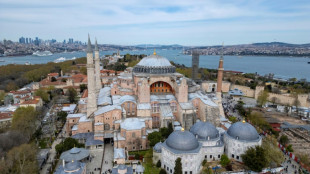 Istanbul's Hagia Sophia prepares for next big quake
Istanbul's Hagia Sophia prepares for next big quake
-
'Magician' Chahal casts spell with IPL heroics
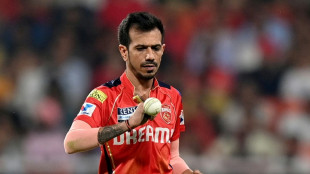
-
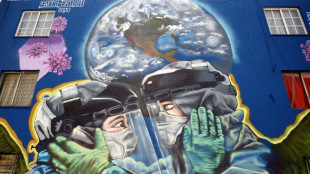 WHO countries strike landmark agreement on tackling future pandemics
WHO countries strike landmark agreement on tackling future pandemics
-
Kerr salutes Harvard defiance over Trump after Warriors win

-
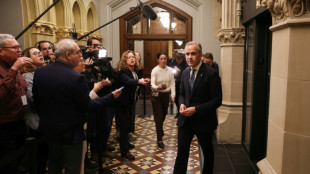 Canada party leaders hold high-stakes debate two weeks from vote
Canada party leaders hold high-stakes debate two weeks from vote
-
As war grinds on, Ukraine's seniors suffer

-
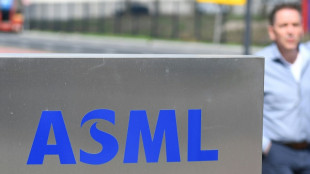 ASML CEO sees 'increased macro uncertainty' from tariffs
ASML CEO sees 'increased macro uncertainty' from tariffs
-
Pope leaves faithful guessing over Easter appearances

-
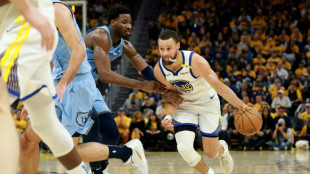 Butler, 'Batman' Curry shine as Warriors down Grizzlies to reach playoffs
Butler, 'Batman' Curry shine as Warriors down Grizzlies to reach playoffs
-
Skating 'Quad God' Malinin ready for Olympic favourite tag
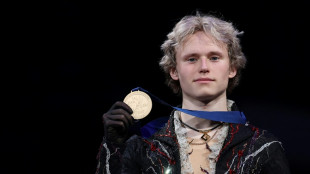
-
 Toppmoeller has ascendant Frankfurt challenging their limits
Toppmoeller has ascendant Frankfurt challenging their limits
-
Cambodia's Chinese casino city bets big on Beijing

-
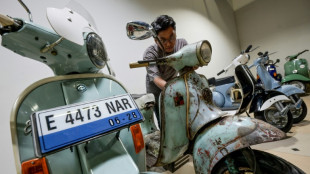 Vespa love affair: Indonesians turn vintage scooters electric
Vespa love affair: Indonesians turn vintage scooters electric
-
Europe seeks to break its US tech addiction
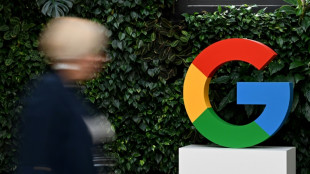
-
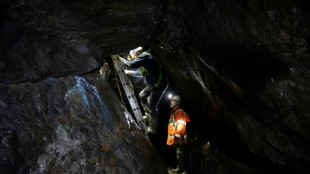 Long-abandoned Welsh mine revived as gold prices soar
Long-abandoned Welsh mine revived as gold prices soar
-
UK's top court to rule on how to define a 'woman'
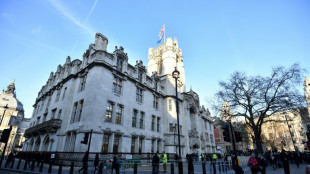
-
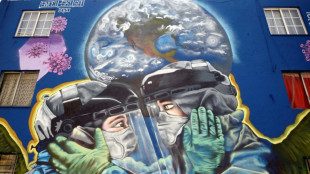 WHO countries reach landmark agreement on tackling future pandemics
WHO countries reach landmark agreement on tackling future pandemics
-
Stocks struggle again as Nvidia chip curb warning pops calm
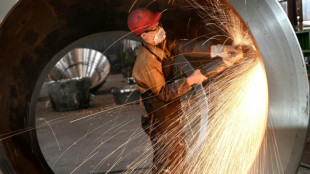
-
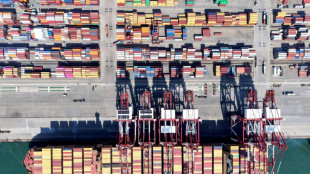 China's economy beats forecasts ahead of Trump's 'Liberation Day'
China's economy beats forecasts ahead of Trump's 'Liberation Day'
-
China's economy beat forecasts in first quarter ahead of Trump's 'Liberation Day'
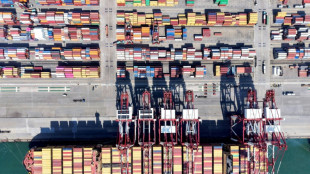
-
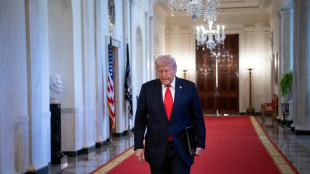 Trump orders critical minerals probe that may bring new tariffs
Trump orders critical minerals probe that may bring new tariffs
-
Onana faces date with destiny as Man Utd chase Lyon win
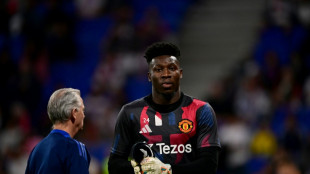

WHO countries strike landmark agreement on tackling future pandemics
Years of negotiations culminated early Wednesday with countries agreeing the text of a landmark accord on how to tackle future pandemics, aimed at avoiding the mistakes made during the Covid-19 crisis.
After more than three years of talks and one last marathon session, weary delegates at the World Health Organization's headquarters finally sealed the deal at around 2:00 am (0000 GMT) Wednesday.
"Tonight marks a significant milestone in our shared journey towards a safer world," said WHO chief Tedros Adhanom Ghebreyesus.
"The nations of the world made history in Geneva today."
Five years after the emergence of Covid-19, which killed millions of people, devastated economies and upturned health systems, a sense of urgency hung over the talks, with new threats lurking -- including H5N1 bird flu, measles, mpox and Ebola.
The final stretch of the talks also took place under the shadow of cuts to US foreign aid spending and threatened tariffs on pharmaceuticals.
- 'It's adopted' -
Right until the last minute, disagreement lingered over a few thorny issues.
Negotiators stumbled over the agreement's Article 11, which deals with transferring technology for pandemic health products towards developing nations.
During the Covid-19 pandemic, poorer states accused rich nations of hoarding vaccines and tests.
Countries with large pharmaceutical industries have strenuously opposed the idea of mandatory tech transfers, insisting they must be voluntary.
But it appeared the obstacle could be overcome by adding that any transfer needed to be "mutually agreed".
The core of the agreement is a proposed Pathogen Access and Benefit-Sharing System (PABS), aimed at allowing the swift sharing of pathogen data with pharmaceutical companies, enabling them to quickly start working on pandemic-fighting products.
In the end, the 32-page agreement was entirely highlighted in green, indicating all of it had been fully approved by WHO member states.
"It's adopted," negotiations co-chair Anne-Claire Amprou announced, to thunderous applause.
"In drafting this historic agreement, the countries of the world have demonstrated their shared commitment to preventing and protecting everyone, everywhere, from future pandemic threats."
The finalised text will now be presented for sign-off at the WHO's annual assembly next month.
- 'More equity' -
As intense talks in corridors and closed rooms drew towards an end late on Tuesday, Tedros told reporters he thought the draft was "balanced", and that a deal would bring "more equity".
While taking measures to coordinate pandemic prevention, preparedness and response could be costly, "the cost of inaction is much bigger", he insisted.
"Virus is the worst enemy. (It) could be worse than a war."
The United States, which has thrown the global health system into crisis by slashing foreign aid spending, was absent.
US President Donald Trump ordered a withdrawal from the United Nations' health agency and from the pandemic agreement talks after taking office in January.
However, the US absence, and Trump's threat to slap steep tariffs on pharmaceutical products, still hung over the talks, making manufacturers and governments more jittery.
But in the end, countries reached consensus.
- 'Real work begins now' -
Looking ahead towards implementation, the leading pharma lobby said intellectual property and legal certainty would be essential if the industry was to invest in high-risk research and development in the next crisis.
"The pandemic agreement is a starting point," said David Reddy, director general of the International Federation of Pharmaceutical Manufacturers and Associations, which participated in the talks.
"We hope that in subsequent negotiations, member states maintain the conditions for the private sector to continue innovating against pathogens of pandemic potential."
Many saw the approval of the text as a victory for global cooperation.
"At a time when multilateralism is under threat, WHO member states have joined together to say that we will defeat the next pandemic threat in the only way possible: by working together," said New Zealand's former prime minister Helen Clark, co-chair of the Independent Panel for Pandemic Preparedness and Response.
As the congratulatory speeches continued on towards daybreak at the WHO HQ, Eswatini's representative cautioned that "whilst we celebrate this moment, we need not rest on our laurels.
"The real work begins now."
G.Frei--VB
